State political editor Daniel Wills rates performances of Labor and Liberal front benches for 2016
IT has been a year to forget for a long-term Labor State Government now dealing with bushfires across health and the economy and watching helplessly as its popular support slides. State political editor Daniel Wills rates the Labor and Liberal front benches.
Opinion
Don't miss out on the headlines from Opinion. Followed categories will be added to My News.
- First five years: Jay has powers of advocacy but has little to show
- Weatherill pushes for referendum on nuclear waste storage
- Daniel Wills: Jay Weatherill’s future clouded over nuke dump plan
- Daniel Wills: Steven Marshall’s captain’s call on nuclear dump
- Daniel Wills: SA Liberals’ 2036 plan is just a flashy prop
IT has been a year to forget for a long-term Labor State Government now dealing with bushfires across health and the economy and watching helplessly as its popular support slides.
But as 2016 comes to a close, the biggest winners have been a grab-bag of minor parties which are capitalising on the Opposition’s failure to step into a trust and leadership void.
As a result, everyone’s results are down this year. No frontbencher has broken through to reach high distinction. Most are bumping around the mediocre mark of a bare pass.
SA is again wearing the embarrassment of Australia’s highest unemployment rate and power bills, is the proud owner of an empty $2.1 billion hospital, continues to let down vulnerable children stuck in state care and its voters feel increasingly isolated from their leaders.
The single biggest constituency in SA today is vote of about 40 per cent for “neither of the above”.
Between them, the major parties are attracting a paltry 60 per cent in recent polls as the Nick Xenophon Team and others, including Pauline Hanson’s One Nation, eat into their bases.
This was the biggest political change in a year that also brought new election boundaries, now the subject of a court challenge.
The challenge for both the major parties is to return in the New Year with a bold and believable agenda to get SA back on track, and inject hope and confidence back into a proud state.
State political editor Daniel Wills rates the 2016 performances of the Labor and Liberal front benches.
LABOR
Jay Weatherill (Premier) — 6
Once the Teflon leader able to shake off any controversy, Mr Weatherill’s personal approval ratings slid this year as the Families SA Royal Commission and collapse of the nuclear debate at the hands of a citizens’ jury he established underlined a lack of trust in the State Government’s ability to deliver.
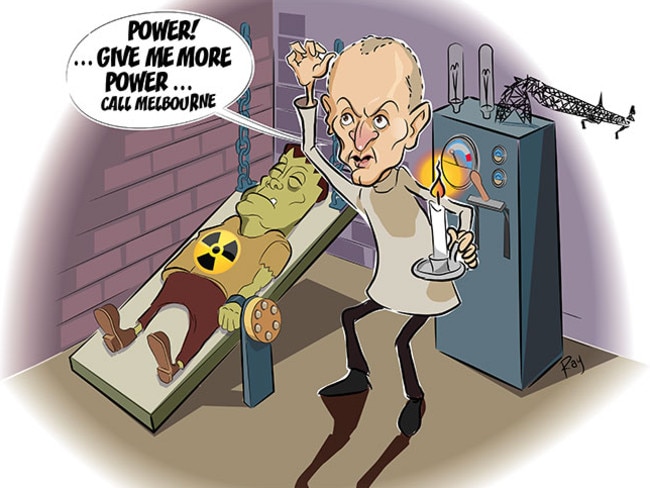
Remains ahead of Liberal leader Steven Marshall as preferred premier, but the trend of current polls has Labor’s stocks sinking, with time running out. The statewide blackout in September could be a portent of even tougher political battles to come as the system’s reliability is tested over summer, and in the New Year, as prices for both businesses and households skyrocket.
John Rau (Attorney-General) — 6
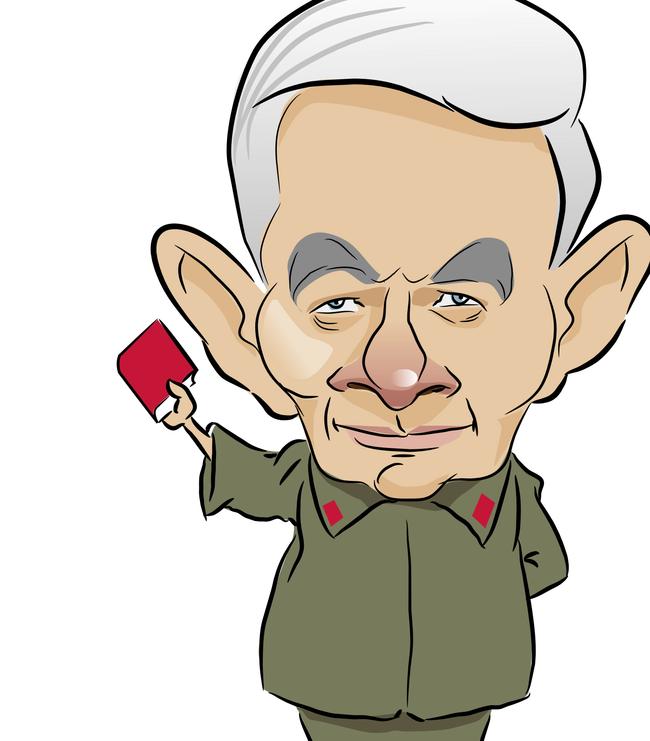
The justified head-scratching which followed his elevation to Senior Counsel overshadowed a year in which the Government’s lead legislator ticked off big changes to the planning system, child protection regulation and liquor licensing as well as a dramatic shift in sentencing laws aimed at reducing reoffending and prison overcrowding.
However, he also rejected calls from the corruption watchdog to better protect whistleblowers and has overseen a worrying creep of Government secrecy.
Kyam Maher (Employment) — 6.5
Rode a wave of better unemployment numbers early in the year and grew as an advocate for the Government’s so-called economic “transformation” plans, which will be put to the test next year as Holden is finally shuttered. This month’s return to Australia’s worst jobless rate was a wake-up call. Built on past advances in the Aboriginal affairs portfolio with a bold and controversial plan to enter treaties with SA Aboriginal people and communities.
Jack Snelling (Health) — 6.5
Had far more than his fair share of bad-news days that included everything from patient record hacking and treatment bungles to the ongoing legal mess that is the new Royal Adelaide Hospital and political migraines of Transforming Health. However, remains committed to the thankless task of driving cost-efficiency in a system which is the most expensive in the nation and has some of Australia’s poorest outcomes. Politically, must prove next year that all the pain was worth it.
Tom Koutsantonis (Treasury) — 7.5
Labor’s most relentless political advocate has also overseen three years as treasurer in which the Budget has been returned to surplus, and a year in which absolute jobs growth was historically strong.
Has been able to claim some political credit as it followed programs of business tax cuts and a cash-for-jobs scheme targeted at employers. The surplus is in large part a result of asset sales, but the Budget’s underlying structural position has also improved under his watch. Energy policy, however, seems a diabolical problem lacking a real solution.
Leon Bignell (Tourism) — 6.5
SA’s spruiker-in-chief took credit for locking down several major events, including the Anthony Mundine-Danny Green rematch at the Adelaide Oval, which give Labor more chances to show off one of its major political assets. Also instrumental in the deal to bring direct flights to Adelaide from China, which offer vast potential to boost international student and visitor numbers.
Martin Hamilton-Smith (Trade) — 6.5
Led some of the biggest trade missions in state history, and is said to have been key behind the scenes in the State Government campaign which helped the state secure the future submarines and two other big shipbuilding projects. Was oddly secretive about his travel expenses, and caught out failing to declare them, for someone who says they deliver great value for money.
Geoff Brock (Regions) — 3
The regions are struggling like never before, with towns like Leigh Creek being all but wiped off the map and Port Augusta and Whyalla struggling with the threat of deindustrialisation. Evasive in Parliament and regularly shielded by other ministers on direct questions. Retains a permanent spot in Cabinet as a handsome reward for backing Labor into minority government in 2014.
Ian Hunter (Water) — 2
Took on water for a dismissive attitude toward people affected by burst water mains. Then made national news for a sweary spray at national and interstate ministers which was followed by other groups confirming similar behaviour in meetings.
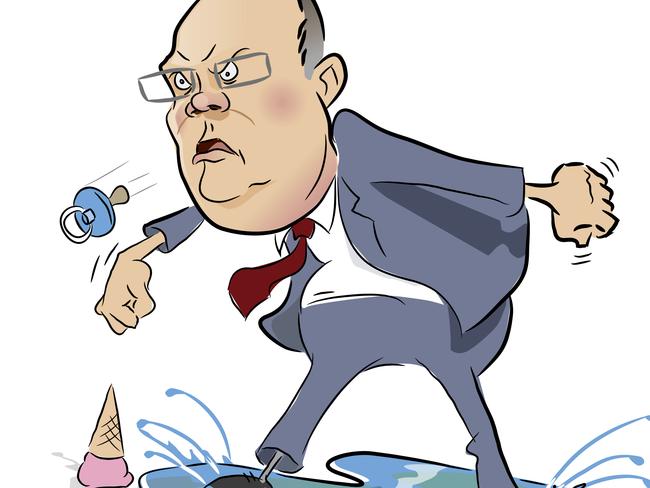
Lost a third no-confidence motion in the Upper House. In years where Labor had a stronger backbench, would surely have lost his job.
Zoe Bettison (Housing) — 4
Keeps a low profile but broke through in the news this year when the Auditor-General revealed her department had been paying concessions to dead people, many for years, costing millions. Is making headway on cutting down delays in approving working with children checks.
Susan Close (Education) — 6
Was embarrassed last month by The Advertiser’s revelations that another Families SA worker had been charges with sex offences and her admission she had not read a key report on suspect employees. Now has the critical task of ensuring more than $400 million in new money for a system in crisis delivers results. A slight improvement in NAPLAN results was a good sign but must be accelerated. Locked down a difficult new teacher pay deal with little fuss and has begun a long-promised reform of the Education Department’s HQ.
Stephen Mullighan (Transport) — 7
The upgrades of South Rd currently underway haven’t delivered the rage-inducing traffic snarls some had feared, and the highly debated O-Bahn extension is proceeding with little fuss. Has finally released long-awaited plans for Festival Plaza and the old RAH development. Gaining a reputation as a safe pair of hands and building in confidence as a minister. Remains firmly in the mix to become a future Labor leader.
Leesa Vlahos (Disabilities) — 6
Stepped into the ministry this year and got through it without major controversies in an often-complex area as rollout of the National Disability Insurance Scheme begins.
Peter Malinauskas (Police) — 7
The shock pick to replace disgraced former Labor minister Bernie Finnigan in the Upper House has been sure-footed since arriving. Despite the almost-comedic bungles in his portfolios of having one prisoner escape but another turned away when asked to be let back in, the minister ensured no mud stuck to him. Moved quickly to resolve a workers’ compensation spat with police. Remains favourite to be Mr Weatherill’s successor.
LIBERAL
Steven Marshall (Leader) — 7
A favourable boundaries redraw and weak popular support for the Labor State Government have the Opposition Leader as favourite to win the next election. However, the Liberals continue to struggle to convert disaffection with Labor into direct support for them as an alternative.
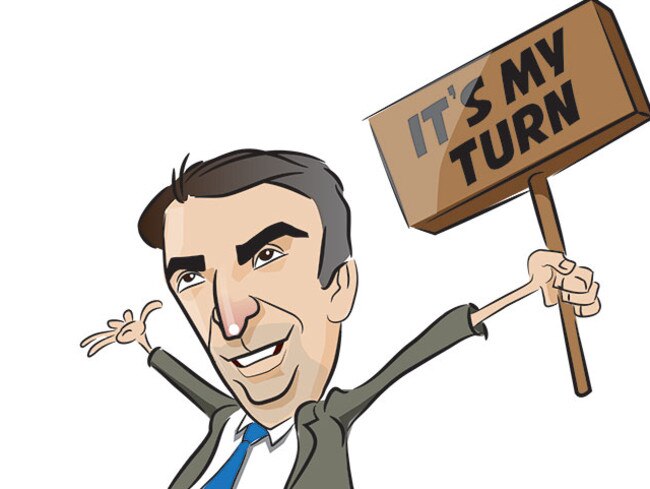
Instead, the number of undecided voters is growing and polls show primary votes spraying to the Nick Xenophon Team and minor parties. Has held together a historically divided party but is yet to emerge as a fully-formed premier-in-waiting. Must seize the New Year and move from chief critic to offering a positive new agenda.
Vickie Chapman (Justice) — 6.5
Doggedly delved into delays with the Festival Plaza redevelopment and raised questions about the value of the deal to taxpayers. Has also released new policies on mandatory drug rehabilitation and domestic violence. The Liberals’ most forensic Question Time performer.
David Ridgway (Agriculture) — 6
Had a significant win in raising the complaints of businesses affected by the collapse of a contractor responsible for the Clipsal 500 grandstand, but retains a low public profile for such a senior MP. Has been active on the ground in independent Martin Hamilton-Smith’s seat of Waite.
Michelle Lensink (Water) — 6
Took on Labor over increases in the Natural Resources Management Levy, which threatened to heap new costs on farmers who are charged with leading Government ambitions to build clean, green produce export industries. Must deliver a strong pre-election plan for cutting household SA Water bills.
Rob Lucas (Treasury) — 7
Has been on the receiving end of leaked Cabinet documents in the past few months and continues to deliver a steady stream of embarrassing stories about Government mismanagement and public sector overspending.
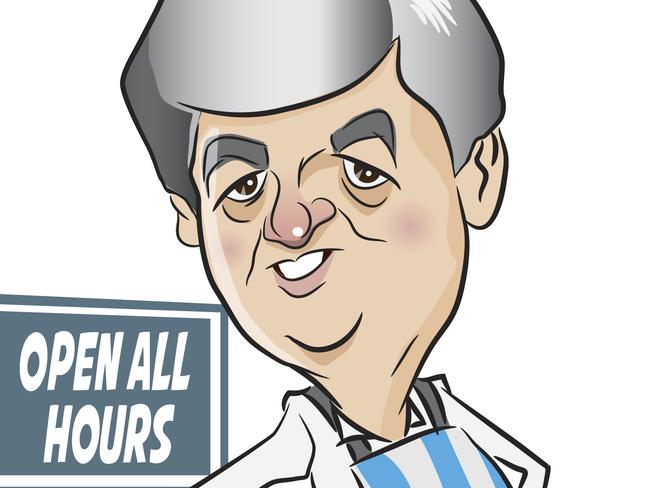
Key in developing the Liberals’ shop trading deregulation policy which, well sold, could be a campaign winner. The only Liberal left who has been a minister.
Stephen Wade (Health) — 7.5
Health is a traditional Labor strength but has become a liability as polls show the Government’s transformation plans are highly unpopular. Takes every opportunity to squeeze political capital out of Labor’s controversial plans to close the Repat and rejig a host of services. But, in the final year of the cycle, faces his biggest test as the Opposition must put up its own policies.
John Gardner (Education) — 6
Has announced a new policy to crack down on the parents of truants and vocally pushes the Liberals’ longstanding plan of putting Year 7 into high school, as is done in other states. Heavily relied on by his leader as the party’s Question Time tactician.
David Pisoni (Transport) — 7
Has an uncanny knack for finding the news story in just about anything.
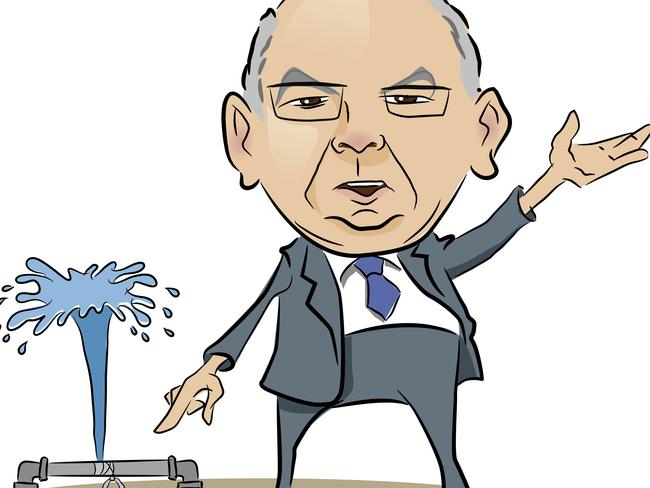
The modest irritation of burst water mains became a genuine political headache for Labor at times this year and the Liberal attack dog has also frustrated the Government with his pursuit of problems on the train network and taxi industry reform, as well as the hot-button issue of cycling on footpaths.
Corey Wingard (Employment) — 6
A regular in the news, where he worked before becoming an MP, as a critic of the Government’s usually nation-leading performance in unemployment. Can struggle when asked to put an alternative and make the positive case for change.
Steven Griffiths (Councils) — 4
The main job of Opposition, especially in the middle of the cycle, is to publicly embarrass your opponents. Has hardly made a ripple in the media this year and, within the party, is widely considered vulnerable if Mr Marshall moves for a reshuffle.
Dan van Holst Pellekaan (Energy) — 6.5
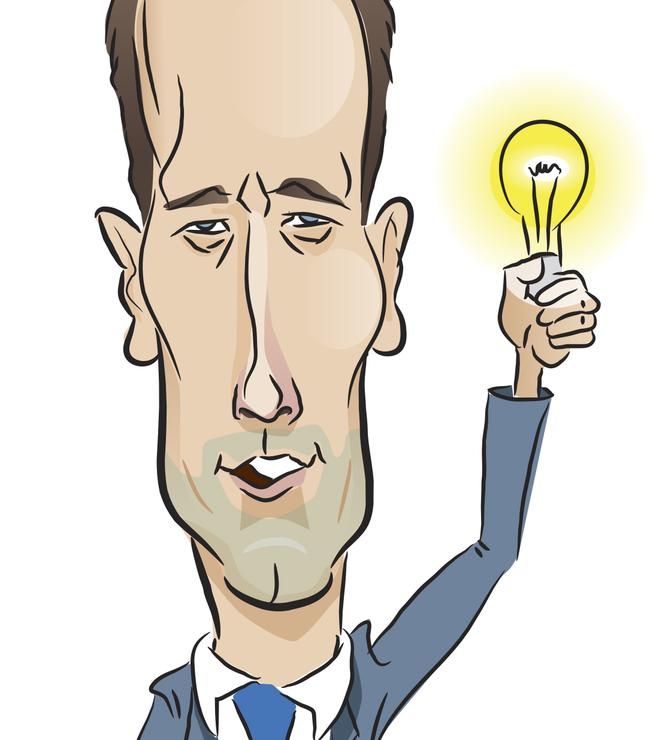
Picked the state’s energy crisis coming well before the near shutdowns of industry in July and devastating blackout of September put it firmly on the public agenda.
Has announced a policy demanding new wind farm approvals only go ahead after a market impact assessment. Has a fine political line to walk now to ensure the Liberals are not accused of being “anti-renewable”.
Duncan McFetridge (Emergency Services) — 5
The biggest attention he received this year was on a private member’s Bill to legalise euthanasia that made it further than any before but still fell short. Has scored a couple of other hits over the rising number of people struggling with utility bills and concessions paid to dead people, but must do more.
Tim Whetstone (Trade) — 6
Got under the skin of his one-time colleague, Mr Hamilton-Smith, by raising awkward questions about the cost of trade missions and success of glossy regional engagement strategies. Has been a strong advocate for farmers and irrigators who were worried about water allocations.
Rachel Sanderson (Child Protection) — 6
A studious shadow minister well-versed in detail of a child protection portfolio which has been badly mismanaged by the Government, and can be one of the few to extract genuine answers from ministers. At risk of being torn in multiple directions next year while defending a marginal seat.


